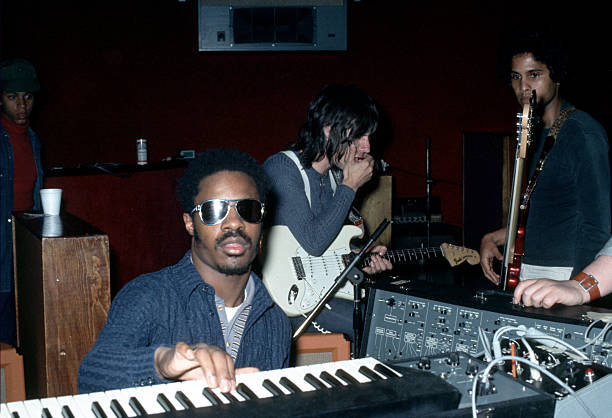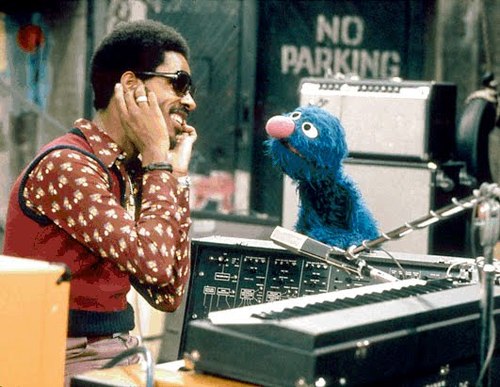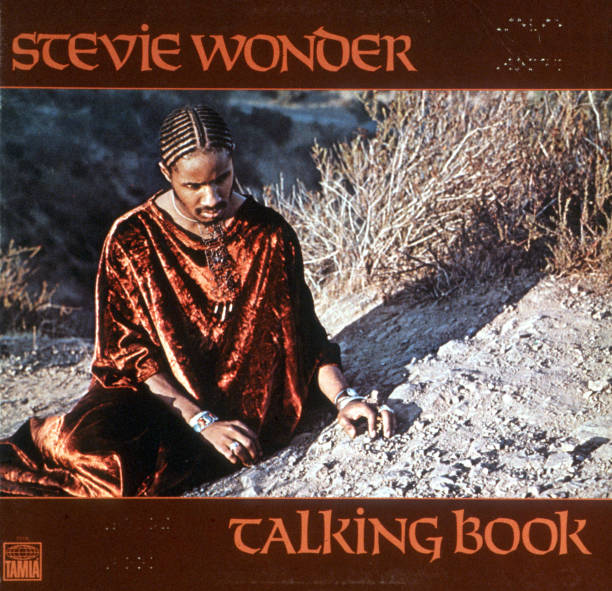50 years have passed since the release of ‘Talking Book’, the true start to Stevie Wonder’s “Golden” period. His mega-hits “Superstition” and “You Are The Sunshine Of My Life” outline classic R&B history. Wonder’s clavinet, half a century later, still echoes in auto shops, retirement homes, and cluttered college dorm rooms. It would be inappropriate to let this anniversary pass without a hearty retrospective: the highs, the sleeper hits, and the impact.

Little Stevie, as he was formerly known, built a history with Motown, pumping out single hits year after year. Some examples are “For Once In My Life” in 1967, “My Cherie Amour” in 1968, and “Signed, Sealed, Delivered (I’m Yours)” in 1970. But at 22, Wonder was growing weary of the label’s focus on singles rather than artistic expression. He began to experiment with independent projects like “Music Of My Mind” in early 1972, where he leaned into new instruments, most notably the clavinet, to create a unique sound. But these were only stepping stones into perhaps his true magnum opus, “Talking Book,” released in late October of 1972.
A Closer Look
“You Are The Sunshine Of My Life” opens the album strongly. A unique mix of Fender Rhodes and congas turns what could’ve been a middling ballad into a soothing experience. Wonder, along with guest singers Jim Gilstrap and Lani Groves, start mellow, joyous, and hopeful, and finish explosively. It sets up the listener for grittier tracks like “Maybe Your Baby” and, most notably, “Superstition.”
On these two songs, the clavinet, drums, and soaring vocals dominate. The contrast to his work a mere three years earlier is stark. Especially in “Superstition,” layers upon layers of funk perfectly encapsulate the album’s majesty. Starting first with a solo drum beat, a sharp clavinet interjects. Bassy synths sit underneath, where a second clavinet harmony strikes. After everything settles, Wonder starts his first verse: simple, clever, and designed for more layering. Horns are introduced. Each instrument deviates from its original pattern and builds to a climax toward the chorus. While most artists would collapse under such a clutter, Wonder manages to make every piece function, and creates a masterwork thumping through five decades.
“Big Brother” is an underappreciated piece in “Talking Book.” It features a unique background African drum, a new usage of the clavinet, and riveting harmonica. Wonder’s lyrics here also got quite political. He alludes to government spying, working class outrage, and deceitful politicians. The song is yet another building block toward his future work, where he would get more controversial in tunes like “Livin’ For The City,” “You Haven’t Done Nothin,” and “He’s Misstra Know-It-All.”
Not a single song can be brushed under the rug in the album. “You and I” brings a perfect ballad to the mix, inspired by his wife at the time, Syreeta Wright. “Tuesday Hearbreak” is the funky mix of Stevie and saxophone we never knew we needed. “I Believe (When I Fall In Love It Will Be Forever)” mixes somber with hope, supplemented by strong and sweeping synths. Everyone can appreciate something in “Talking Book,” whether it’s the slower, more somber tones of ‘Blame It On The Sun’, or the mildly eerie mood of “Lookin’ For Another Pure Love.”
Fifty Years Later
Wonder continued to strive with his newfound style for the rest of the decade, releasing back to back genre-defining albums. Critical acclaim accompanied his entire so-called “golden” period, and “Talking” Book” was no exception. “You Are The Sunshine Of My Life” and “Superstition” peaked at No. 1 on the U.S. Billboard Hot 100, and earned spots on Rolling Stones’s “The 500 Greatest Songs of All Time.” The album itself ranked 59 on a similar Rolling Stones list. Wonder took home three of his first Grammy awards for the album.

In 1973, many children got their first experience of Wonder’s magic on Sesame Street, where he performed “Superstition” and spoke with Grover. Much later in 2011, George Michael gifted a cover of “You and I” in honor of the wedding of Prince William and Kate Middleton. In the cover’s reveal, he told CNN’s Piers Morgan, “I used to dream of singing it in a school assembly hall.” Morgan responded by saying he “wooed his wife” with the song. Allegedly, President Obama did the same with his wife.
Clearly, “Talking Book” by Stevie Wonder has not lost any of its luster or influence in the 50 years since its release. From American presidents to awkward undergraduates, it changed lives and inspired a renaissance in R&B production. It’s an album that did not merely release to be catalogued. It was released to be remembered, to inspire, and to permeate. In 2072, when critics think back to the previous century, “Talking Book” should undoubtedly still be on the radar.




